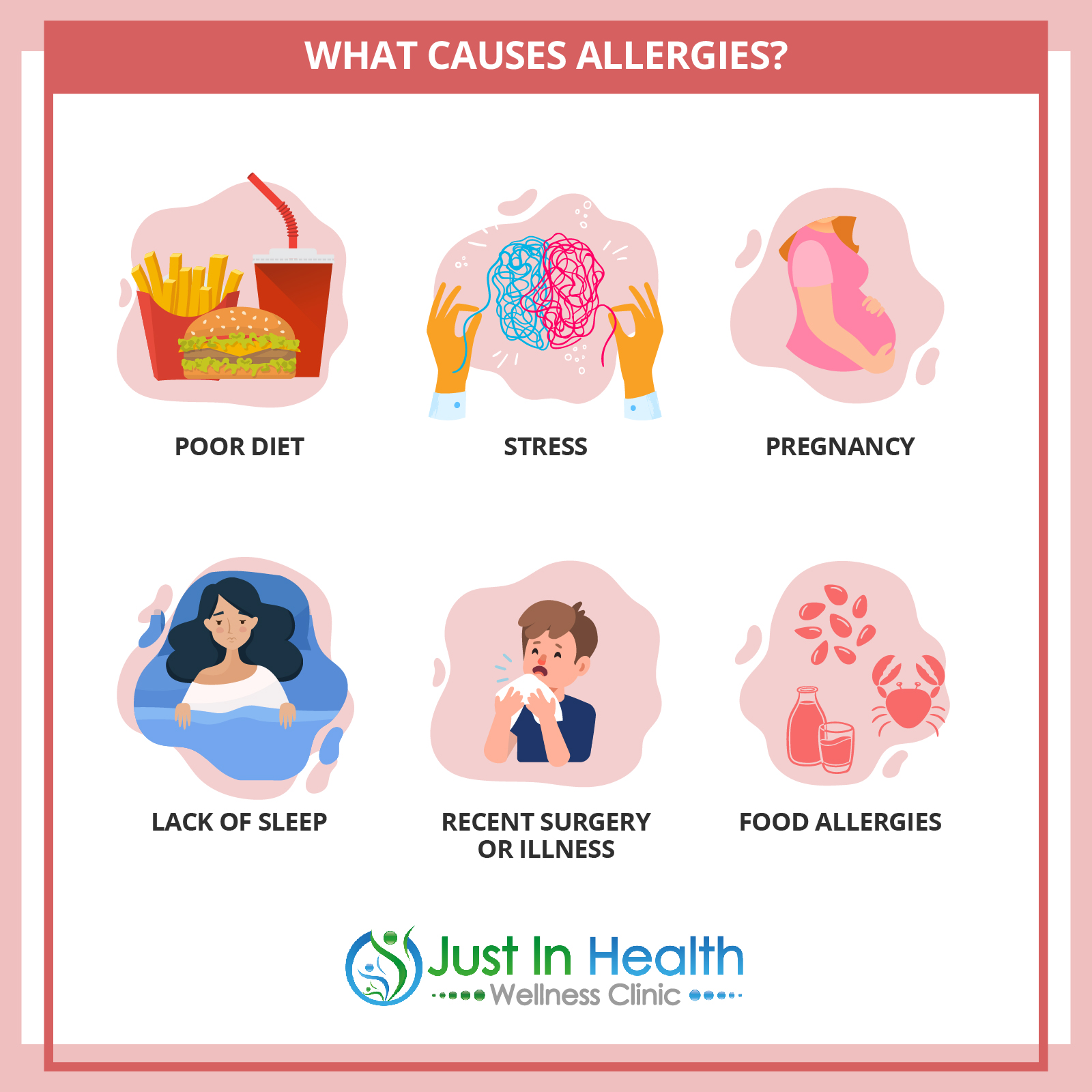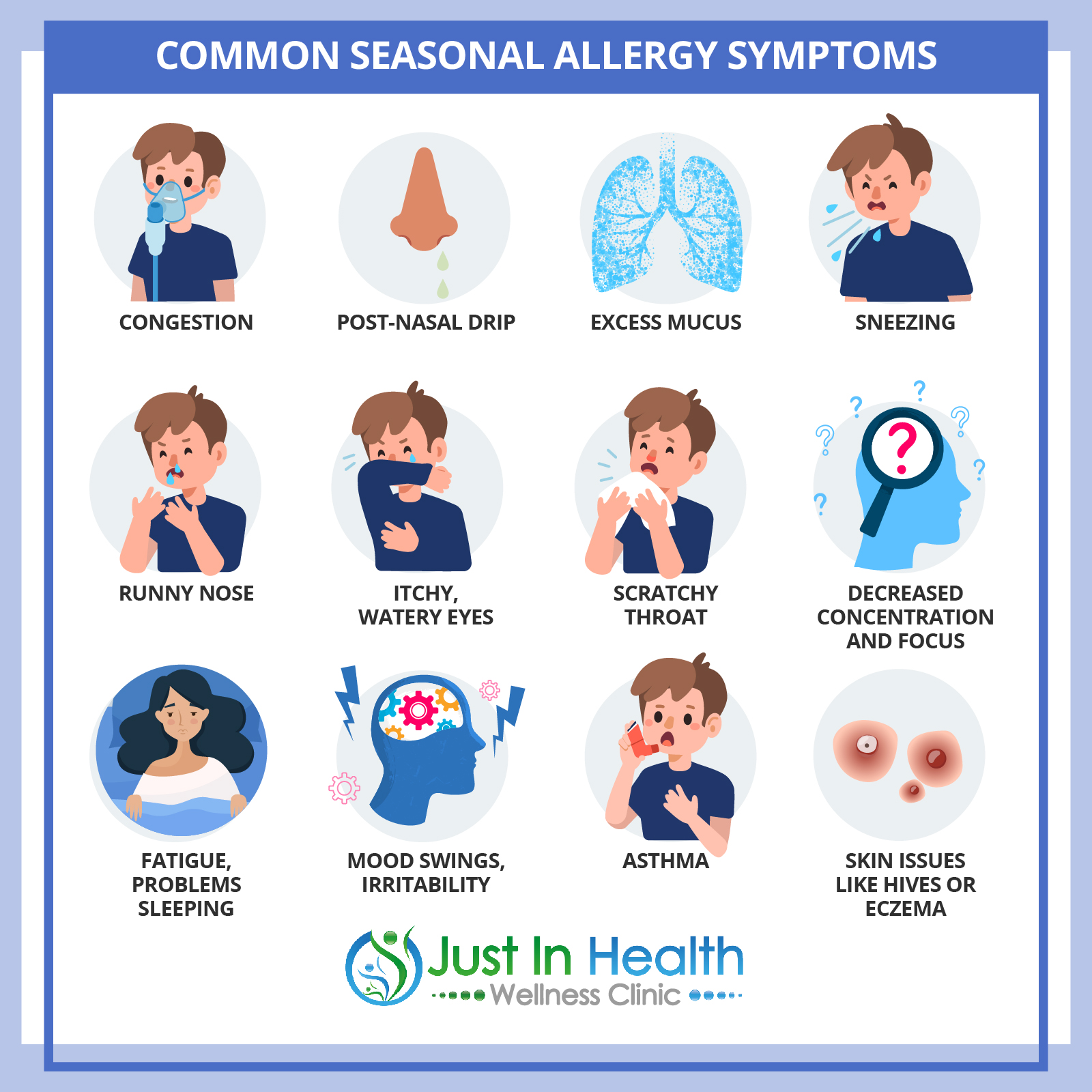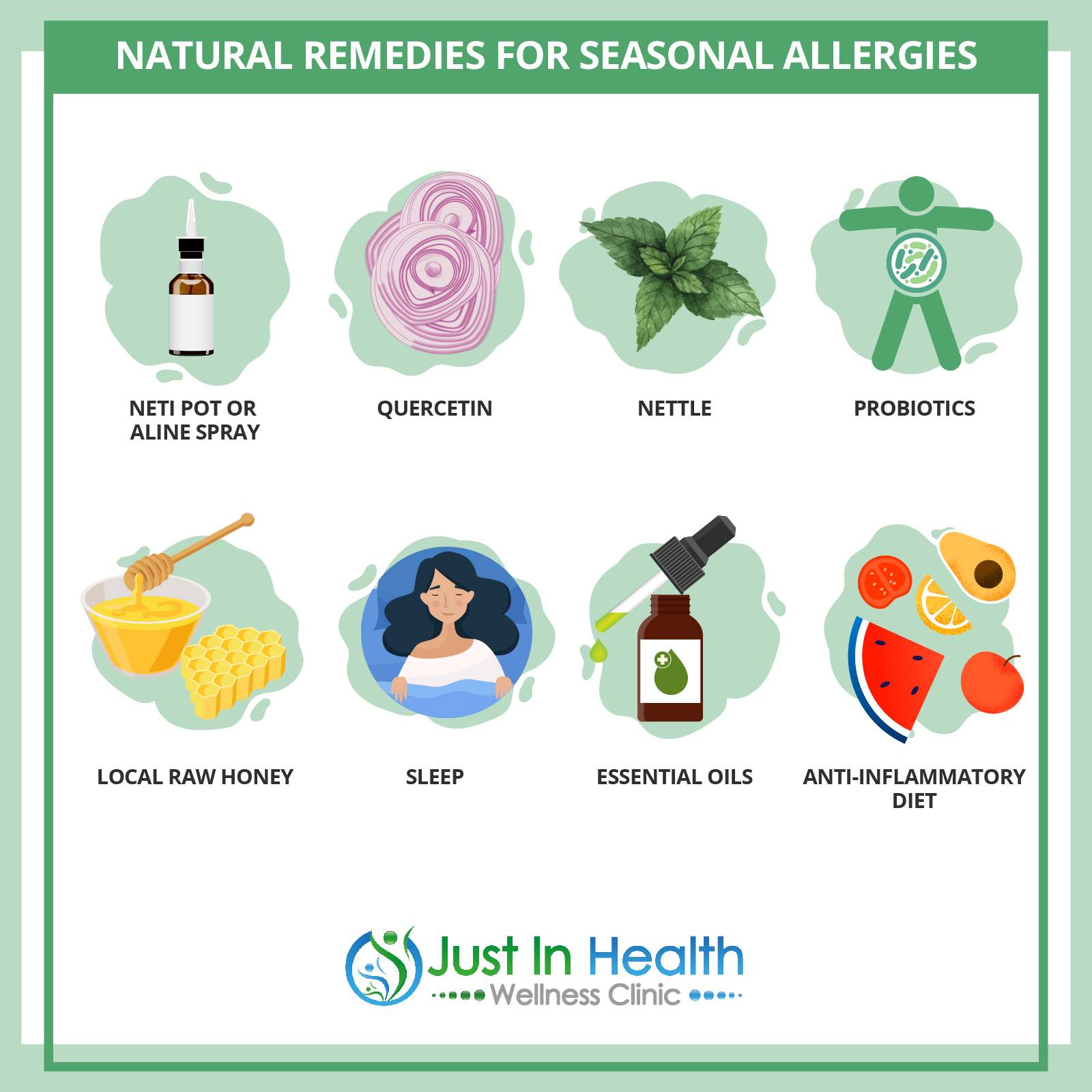

By Dr. Justin Marchegiani
Do you suffer from seasonal allergies—sneezing, congestion, itchy eyes, or fatigue—every spring or fall? You’re not alone. An estimated 40 to 60 million Americans deal with seasonal allergies each year. But here's the good news: allergies don’t have to control your life.
In functional medicine, we go beyond symptom management and look at the root causes of allergies to help you naturally strengthen your immune system and reduce your body’s reactivity to harmless substances like pollen, mold, or pet dander.

At their core, allergies are an immune system imbalance. Your body mistakenly treats a harmless substance (like pollen) as a threat, triggering a cascade of inflammatory chemicals—especially histamine—that create uncomfortable symptoms like sneezing, watery eyes, and congestion.
But why does this happen in some people and not others?
It all comes down to your stress bucket—a metaphor we use in functional medicine. Imagine each stressor in your life adds a drop to your bucket. These stressors could be:
Poor diet (gluten, sugar, processed foods)
Chronic stress
Poor sleep
Environmental toxins
Underlying infections
Leaky gut or dysbiosis
Trauma or recent illness
Even pregnancy or surgery
Once that bucket overflows, your immune system becomes hypersensitive—and everyday triggers like pollen provoke a full-blown allergic response.

If you experience any of the following symptoms around certain times of the year, you may be dealing with seasonal allergies:
Sneezing and runny nose
Congestion or post-nasal drip
Itchy, watery eyes
Scratchy throat
Excess mucus production
Fatigue or brain fog
Mood swings and irritability
Skin issues like hives or eczema
Sleep disruptions
Asthma or breathing difficulties
These symptoms are often mistaken for viral infections or just “bad luck” but are frequently signs of deeper immune dysfunction.
Seasonal allergies are not just about pollen—they’re a symptom of a weakened, overburdened immune system. The root causes may include:
Leaky Gut (Intestinal Permeability): A compromised gut barrier allows toxins and proteins to enter the bloodstream, activating immune responses.
Dysbiosis: Imbalances in beneficial vs. harmful gut bacteria can increase systemic inflammation.
Nutrient Deficiencies: A lack of vitamin C, D, zinc, and quercetin can reduce the body's ability to regulate histamine.
Liver Congestion: The liver helps clear histamines. A sluggish liver can mean histamine stays in circulation longer.
👉 Click here to schedule a free consult with Dr. Justin Marchegiani and uncover your immune stressors.

A powerful antioxidant and natural antihistamine, quercetin stabilizes mast cells and prevents histamine release. Studies show quercetin can significantly reduce allergy symptoms.
Try: 250–500 mg twice daily, ideally with bromelain for better absorption.
Nettle is a potent natural antihistamine. It inhibits pro-inflammatory pathways and reduces histamine production. It can be taken as a tea, capsule, or tincture.
A sterile saline rinse helps flush out pollen and environmental allergens from your nasal passages, relieving inflammation and congestion.
Pro tip: Always use sterile, distilled, or previously boiled water.
Healthy gut = balanced immune system. Probiotics help modulate immune response, reduce histamine-producing bacteria, and improve gut lining integrity.
Try: A high-quality probiotic blend, especially strains like Lactobacillus rhamnosus and Bifidobacterium lactis.
Local honey may help build a natural tolerance to pollen in your region. One study found better allergy relief with raw honey compared to over-the-counter meds.
Tip: Never heat raw honey—add it to tea only after it’s cooled to preserve beneficial enzymes.
Peppermint, eucalyptus, and lavender essential oils help open nasal passages and reduce inflammation. Use in a diffuser or apply topically with a carrier oil.
Sleep is when the immune system repairs. Aim for 7–9 hours nightly in a dark, quiet room. Keep the room cool (65–68°F) and minimize blue light exposure before bed.
✅ Anti-inflammatory Diet: Focus on organic vegetables, wild-caught fish, pastured meats, and healthy fats. Eliminate gluten, dairy, refined sugar, and alcohol during allergy season.
✅ Hydration: Drink plenty of filtered water to thin mucus and support detox pathways.
✅ Air Purifiers: Use HEPA filters to reduce airborne allergens in your bedroom and home.
✅ Stress Management: Incorporate yoga, meditation, grounding, and natural time to reduce stress.
If your seasonal allergies persist despite natural approaches, functional lab testing can help uncover deeper root causes:
IgE and IgG Food Sensitivity Panels
DUTCH Test (adrenals/cortisol)
Comprehensive Stool Testing (like GI-MAP)
Organic Acids Test (OAT)
Histamine & DAO enzyme markers
Nutrient and detox panel (ZRT or Vibrant America)
These tests can clarify gut health, histamine metabolism, liver function, and stress responses—all closely tied to allergy symptoms.
📌 Book your free 15-minute consultation with Dr. J to explore these options.
Seasonal allergies are not a life sentence. By identifying the underlying causes—whether gut imbalances, stress, or toxic overload—and implementing these natural remedies, you can regain control of your health.
You don’t have to rely solely on antihistamines and decongestants. Instead, strengthen your immune system naturally and reduce your allergy symptoms at the root level.
🔬 References
Quercetin as a natural antihistamine
Quercetin has been shown to inhibit histamine release and reduce allergic inflammatory responses.
https://pubmed.ncbi.nlm.nih.gov/23290279
Stinging nettle for allergy relief
Stinging nettle (Urtica dioica) may provide relief from allergic rhinitis symptoms by blocking histamine receptors and reducing inflammation.
https://pubmed.ncbi.nlm.nih.gov/19140159
Probiotics and allergic diseases
Gut microbiota influences immune response. Certain probiotic strains are shown to reduce allergy symptoms and modulate immune activity.
https://pubmed.ncbi.nlm.nih.gov/28472629
Raw honey for seasonal allergies
Consuming local raw honey may help alleviate symptoms of allergic rhinitis by introducing small amounts of local pollen and modulating immune response.
https://pubmed.ncbi.nlm.nih.gov/21722682
Impact of sleep on immune function
Poor sleep quality is associated with reduced immune response and increased susceptibility to inflammatory diseases.
https://pubmed.ncbi.nlm.nih.gov/25061767
Essential oils and respiratory health
Peppermint and eucalyptus oils have decongestant and anti-inflammatory properties that may improve breathing in allergic rhinitis.
https://pubmed.ncbi.nlm.nih.gov/20359267
Gut barrier dysfunction and immune dysregulation
Leaky gut and microbiota dysbiosis contribute to immune hypersensitivity and allergic conditions.
https://pubmed.ncbi.nlm.nih.gov/24099027
====================
Recommended Products
====================
Recommended Lab Tests
Here's a concise version of Dr. J’s sinus flush protocol checklist:
See the video here:
====================
IN CASE YOU MISSED IT:
Why Your Dermatologist Doesn't Address the Root Cause of Acne | Podcast #447